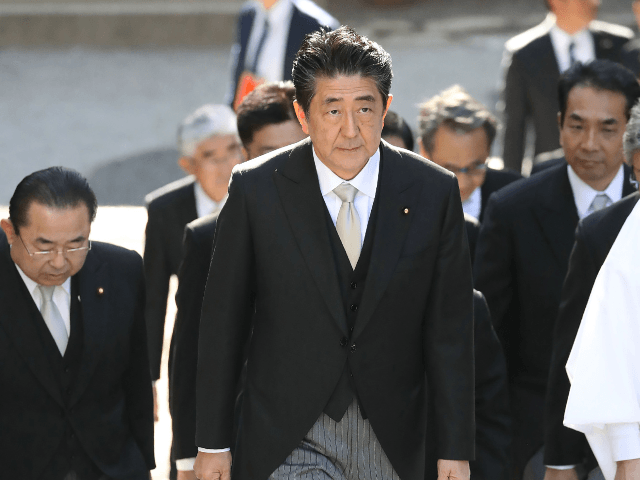Japanese Prime Minister Abe Shinzo confirmed his intention on Monday to send members of the nation’s Self-Defense Forces to the Middle East in the immediate aftermath of a U.S. airstrike eliminating Iranian terror chief Qasem Soleimani.
At a televised news conference, Abe announced that he would deploy the Japanese Self-Defense Forces to the region to ensure the safety of Japan’s ships and military assets. He also called on both sides to make diplomatic overtures to avoid a potential military conflict.
“With heightened tensions in the Middle East, I’m deeply concerned about the current situation,” Abe said. “A further escalation of the situation should be avoided and I ask all parties involved to exhaust diplomatic efforts to ease tensions.”
Major General Qasem Soleimani was eliminated by a U.S. drone strike at Baghdad airport on January 3, with President Donald Trump subsequently warning the Iranian leadership that the U.S. has identified 52 Iranian targets should it respond with any violent retaliation.
As noted by analysts who spoke with the South China Morning Post, the crisis is problematic for Abe, who last year touted his country’s “long tradition of friendship” with Iran and promised to make “every effort” towards reducing tensions between Iran and United States.
“The assassination clearly caught the Japanese government by surprise and it’s humiliating for Abe because he was the one trying to play the role of mediator between the two sides,” Akitoshi Miyashita, professor of international relations at Tokyo International University, told the Post.
He explained:

COMMENTS
Please let us know if you're having issues with commenting.